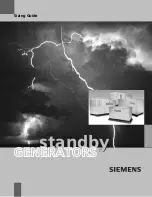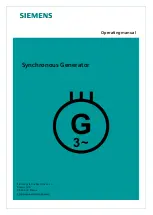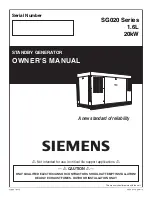
TI206 MPU-24
2
1
Safety Review
1.3 – Hazards
WARNING
Shock Hazard Potential
WARNING
Shock Hazard Potential
Severe injury or death from electrical shock can occur when damp electrical plugs are connected to the
unit. Before making any connections, turn off unit. Failure to use proper grounding can cause potential
shock hazard! In different countries, the power cord may require the use of a plug adapter to achieve plug
style compatibility for operation. Use only adapters with proper grounding mechanism.
CAUTION
Unit Damage Potential
Severe injury or death from electrical shock may occur, if either user
or the unit is wet, while the unit is connected to a power source. If the
unit has come into contact with water, discon nect ac power from the ac
source. If AC Input Circuit Breaker has tripped due to water infi ltration,
DO NOT try to reset it with the ac line voltage attached.
Figure 1.3.1 – Proper Ground
Grounded Plug with Grounding Pin
Figure 1.3.2 – Proper Ground
Adapter with Grounding Mechanism
(Secured to Outlet)
Figure 1.3.3 – Improper Ground
Plug with No Grounding Pin
The use of unapproved ac power will damage the unit. Check the
Input Voltage Selector Switch window
(outlined in blue)
to ensure
the switch setting (115V or 230V) matches the ac power source
(hangar wall, fl ight line ac power) prior to connecting the unit for
recharging.
1.4 – Important Safety Precautions
WARNING
Fire/Explosion Hazard Potential
Severe injury or death from fi re or explosion can occur if electrical sparks are produced near fuel vapors. DO
NOT CONNECT ac power supply WHILE FUELING. AC power functions of unit shall not be operated during any
fuel handling operation. Power output is restricted to dc power only.
1.5 – Extreme Environments
CAUTION
Unit Damage Potential
The unit’s charger temperature switch automatically disables the unit when the internal temperature exceeds
150°F (65°C). This protects the unit from overheating and damage. If the unit shuts down, move the unit
into a cooler environment such as shade or air conditioning when possible. Perform a full function test, after
the unit has been allowed to cool, prior to use.










































